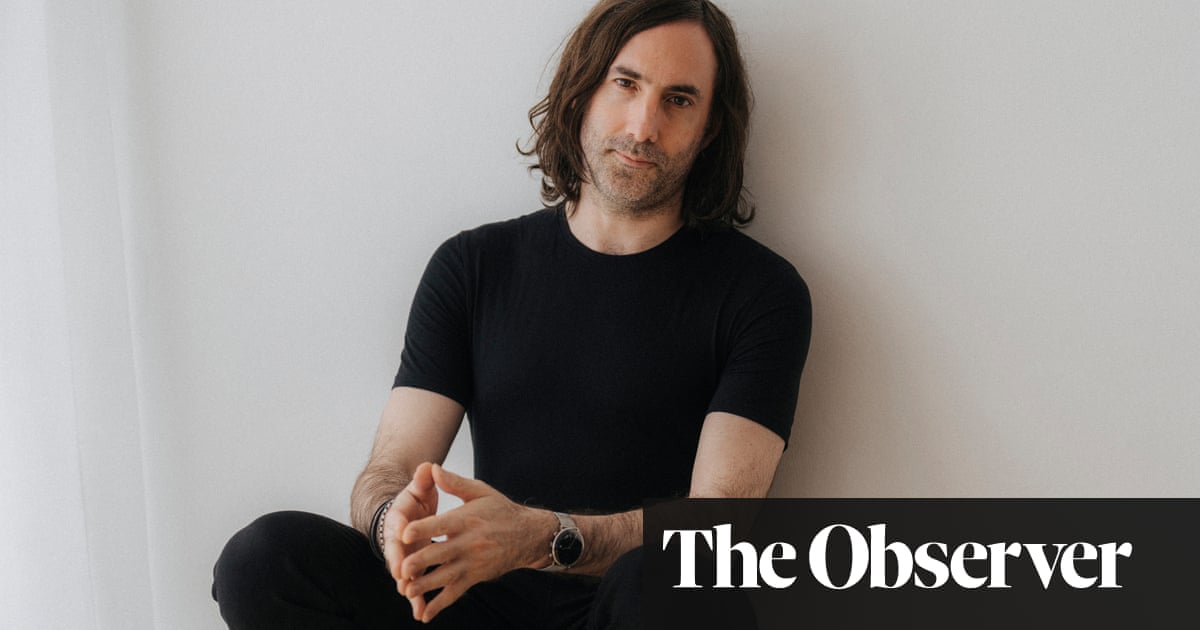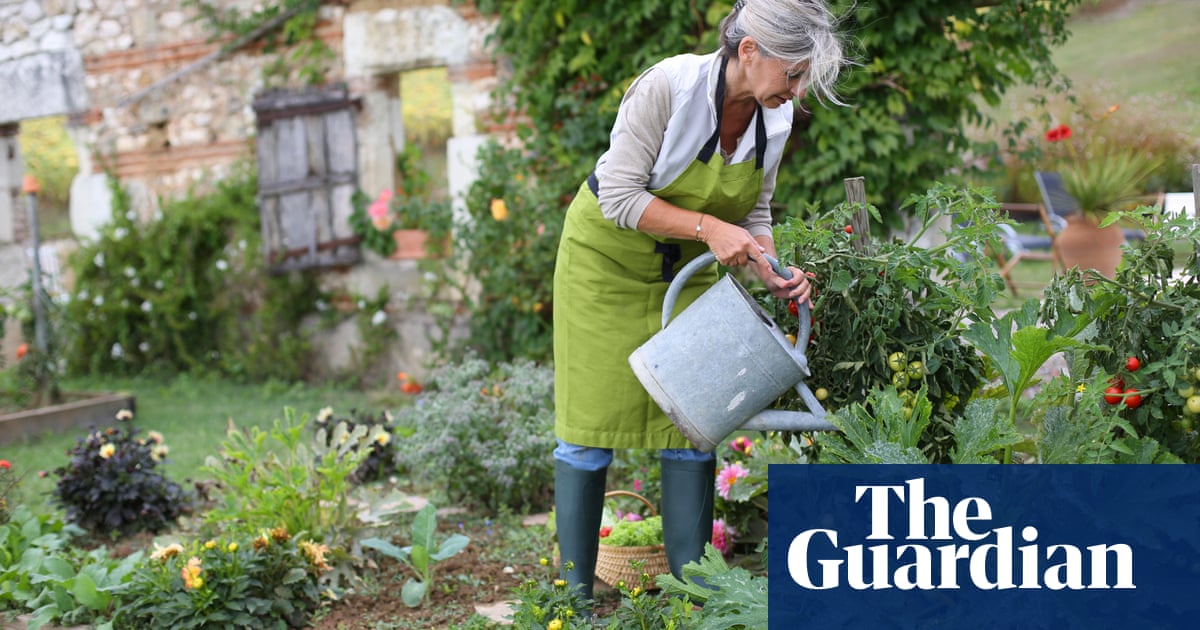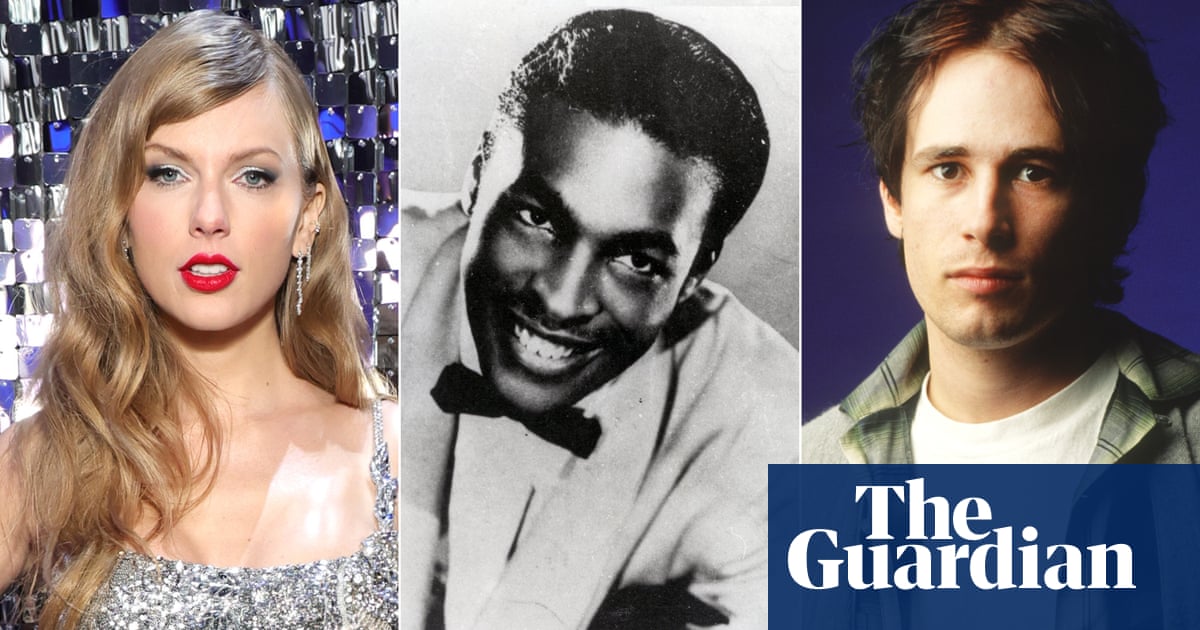
evin Clifton is painting a picture of what it was like to be a champion ballroom dancer as a schoolboy. “I’m the kid who is turning up on Monday morning … one of the shortest kids in the year. With an orange neck from a competition in Birmingham. And I look like this because I do ballroom dancing. With my sister. Who is in the year below me. And I’m at the age when girls grow a bit faster than boys. So she is a bit taller than me at this point. So Mum and Dad have decided that it’s a good idea for me to have a perm so that my hair stands up a bit, and I look taller. And then the school says: ‘Will you do a dance in assembly?’ And I say: ‘Er, all right. I’ll do a dance in my sparkly shirt and my makeup with my sister from the year below.’
“All I wanted was to be on the football team. You learn to take the mick out of yourself. Which is, I suppose, how I became ‘Kevin from Grimsby’.”
Clifton is best known as “Kevin from Grimsby” because of Strictly Come Dancing, the show where his partnerships – with the comedian Susan Calman, the singer Louise Redknapp and his winning season with the TV presenter Stacey Dooley in 2018 – made him an audience favourite as the professional who is down to earth, unpretentious and caring. The name came about because Bruce Forsyth once joked that he was struggling to pronounce the names of the crop of new dancers: “Aljaž Skorjanec from Slovenia … Iveta Lukosiute from Lithuania. And, finally, a name I can say: Kevin from Grimsby.”
Clifton quit the show earlier this year to go on to bigger and better things – which are, of course, not happening because of Covid-19 and social distancing. This was supposed to be the year when “Kevin from Grimsby” became his own man, starring in musicals and West End shows. Now, he doesn’t know when he’ll dance in front of an audience again. And he is already, he claims, “probably the most unfit I’ve ever been”. (Although his ripped appearance, featuring a moody lockdown beard, doesn’t really bear this out. These things are relative.)
Grimsby is still part of his life, though. When we meet – carefully distanced at the flat that he shares in west London with Dooley, who is now his girlfriend – he has just returned from visiting his parents for the first time in months. Keith and Judy Clifton (“four times British Latin American champions”) still run the Clifton Dance Academy in Grimsby. Their children, Kevin and Joanne, both international dance champions as children and adults – as well as Strictly winners – take pride of place on the website.
The decision to quit Strictly never seems to be an easy one. The dancers all want to win and then leave on a high, but it never quite works out that way. After winning with Dooley in 2018, Clifton returned to the show in 2019, partnered with Anneka Rice, but crashed out in week three, his worst result. Yet he went on to star in the musicals Rock of Ages and The Wedding Singer (like his sister, he can sing and act as well as dance). When Clifton quit Strictly on 6 March, just before Covid-19 hit the UK, it was to take up his dream role in a national tour of Strictly Ballroom: The Musical, directed by the Strictly judge Craig Revel Horwood. The curtain would have been going up in the next few weeks.
This is the longest time in his life he has gone without performing. Instead, his obsession with “podcasts, courses and wanting to learn things” is driving Dooley crazy, he says. “She was swapping stories with some friends: ‘How are you finding lockdown with your partner?’ And she said: ‘Me and Kev don’t argue – we get on well as mates as well as a couple. The only thing I can complain about is that sometimes he wants to have a big conversation about the nature of consciousness. And, most of the time, I don’t want to have a big conversation about the nature of consciousness.’”
Lockdown has made a lot of us reflect on the gaps in our lives, and you get the sense that at 37, he is playing catchup with himself. He has been taking online classes on writing. Masterclass (the video series whose adverts are constantly popping up on Facebook) has been his saviour in lockdown: he has followed courses with the playwright David Mamet and children’s author RL Stine and has started writing a children’s book about (guess what?) a boy who loves to dance.
Exhaustingly, even in lockdown the tabloid feeding frenzy is a constant feature in his life. Clifton says this is because: “Stace is a big name.” This is a fair assessment: Dooley is a hugely popular and photogenic BBC presenter. But the interest in them as a couple is also largely because when they danced on the show together, they denied they were in a relationship. This always fuels interest. Plus Clifton’s ex-wife, Karen Hauer, is also a dancer on Strictly. Still, a year on, the made-up stories take their toll. “It’s horrible when you feel as if the press are going for you,” he says. “If you read the tabloids, during this lockdown, Stacey has been pregnant, I’ve proposed to her, we’ve had big fights … It’s all been going down. In reality, we are the most boring couple in the history of the world. I will be sitting here doing my Mamet masterclass and saying: ‘What do you think about consciousness?’ And Stacey does her work and then likes to sit and watch things like Selling Sunset on Netflix about estate agents in LA. We don’t even drink and there will be stories about drunken rages … We drink tea. I’m getting good at ignoring it.”
Perhaps the most frustrating thing for him as a dancer is the inability to plan. As theatres closed in March, he was in rehearsal for Burn the Floor: Kevin vs Joanne, which was scheduled for June and July. It’s now pencilled in for the autumn, a long-awaited opportunity to perform with his sister, this time without a perm. “It was the show we’ve always dreamed of since we were kids. Now we don’t know what’s happening. We’re in talks about next year, but I don’t know if Joanne will be available then.” He already got booked for a huge international show (“which I can’t talk about”) for 2022, only to see that opportunity slide away as the dates for Strictly Ballroom: The Musical bled into 2022. This is a double blow for performers. Not only are they not able to work right now, later commitments may also clash as shows are rescheduled.
All this must leave him wishing he was still signed up to Strictly, which shows every sign of going ahead, with as-yet-to-be-defined distancing measures in place. “I can’t leave my sister high and dry, and go back on Strictly,” he begins. “But I don’t know. Never say never.” He relents as soon as he has said this. “I’ve made that decision [to leave Strictly]. And it would feel weird if I suddenly went back again.”
The typecasting as “Kevin from Grimsby” might have been more bearable if Clifton hadn’t already struggled with his identity as a dancer. “I got to a point in my 20s when I really started to ask if this was just what my family did. My grandparents were dancers as well. Three generations. Is this the family thing? Or something I want? I was falling out of love with the competition scene. You had to play a game. The people who were judging were also coaches. So you have to make sure you’ve had lessons with this one or that one because then they’ve ‘seen’ you. You have to dance ‘like this’ to get first place …”
This is, er, the story of Scott in Baz Luhrmann’s film Strictly Ballroom. “Yes! I had seen Strictly Ballroom when I was 10, and he had become my hero. I wanted to dance from my heart. I thought: ‘I don’t know how important first place is to me any more.’”
The untold story of this world is that these champion dancers are frequently doing other jobs when they are at the peak of their competition careers. “It was expensive. I was holding down other nine-to-five jobs to afford it. I worked in telesales and in an office-stationery wholesale department. Yes, when you get to the top at pro level, you can earn decent money. But the biggest competition is the British Open Championships in Blackpool. It’s like Wimbledon is to tennis. If you came first in that competition, when I was at the top, the prize money was £120.” A lesson with “the right people” was more expensive than that.
“Everything was about getting to the goal of winning the competition. You follow the path, and you do not stray from the path. And it was going well. You get the affirmation and the results. But it’s not just: ‘Make sure you dance like this …’ It’s also: ‘Make sure you dance in front of this person like this; make sure you are nice to this person.’ I would be thinking: ‘Why do this? So that I can hold up this plastic trophy and win £120? When I didn’t want to teach at the end of it all? All I wanted was to perform.” Also, he says, on some level, it stops you from growing up. “My mates got to leave home and go to university, and make mistakes … And that shapes you as a person, rather than the person you are when you are under your parents. I was still on that path in my 20s. My mum and dad were my coaches. I thought: ‘It’s not just that I want to give up dancing. I want to become a completely different person.’”
Fortunately for his parents – who were, he says, always supportive, but worried at times that he was “throwing it all away” – he went to see Matthew Bourne’s Edward Scissorhands at Sadler’s Wells. It showed him that there was a different way to dance. It didn’t have to be about a plastic trophy. Shortly afterwards, he was offered a role in Burn the Floor, an international touring show that gives a home to dancers who have been doing the competition circuit since they were toddlers, and who want more freedom in their performance. It’s also a waiting room for Strictly.
The first time he went up for Strictly, he was going through a goth phase and they rejected him. “I had long black hair, black eye makeup, black fingernails, leather trousers. I used to go around with a top hat and a cane. I really lost control there for a minute. I was really giving it all that: ‘Ballroom is rock’n’roll …’” He laughs at himself. His dance mentor, Jason Gilkison, a Strictly choreographer, told him he failed the audition because “you look like an idiot”. “I went back the next year as a different person: Pink shirt, Latin trousers, smart shoes.” They put him on the reserve list, and he got the call: “You start on Monday with Susanna Reid.”
To be labelled “the nice guy next door” was something of a relief. But only initially: “I’m never going to be the tall, bronzed, muscular guy on the show, the one with the tattoos … That’s never going to be me. As soon as Bruce Forsyth did the ‘Kevin from Grimsby’ thing, I thought: ‘I can just be me for a bit and get away with it.’ But I don’t want to be only that.” Still taking the mick out of himself before anyone else can, he adds: “Maybe there’s a part of me still trying to be a cool kid. Hopefully, Covid-19 is going to go away at some point and allow that.” Meanwhile, until the curtain goes up again, there’s something very satisfying thinking of him sitting at home asking Dooley how she is managing her consciousness today.












